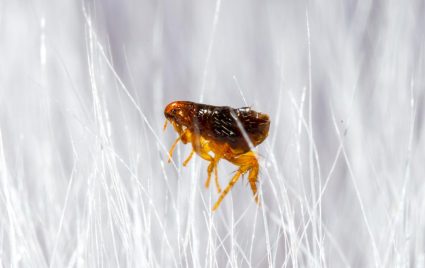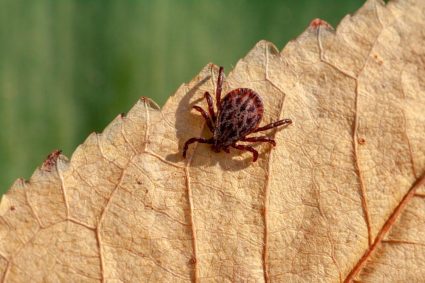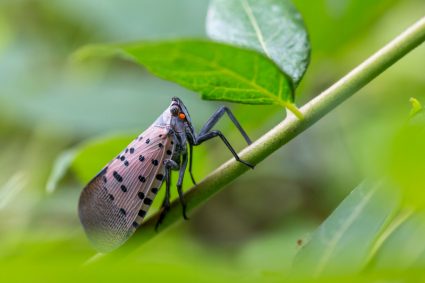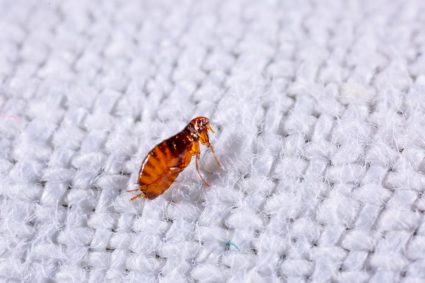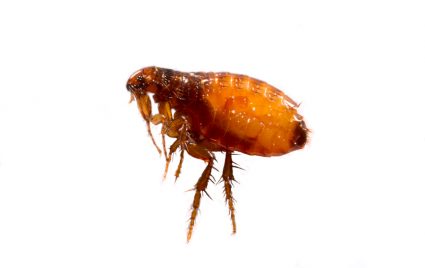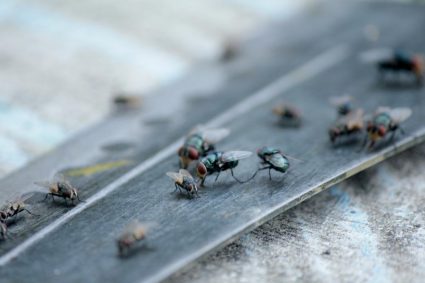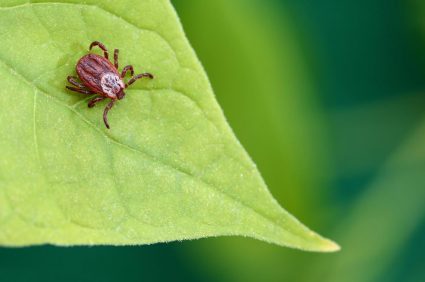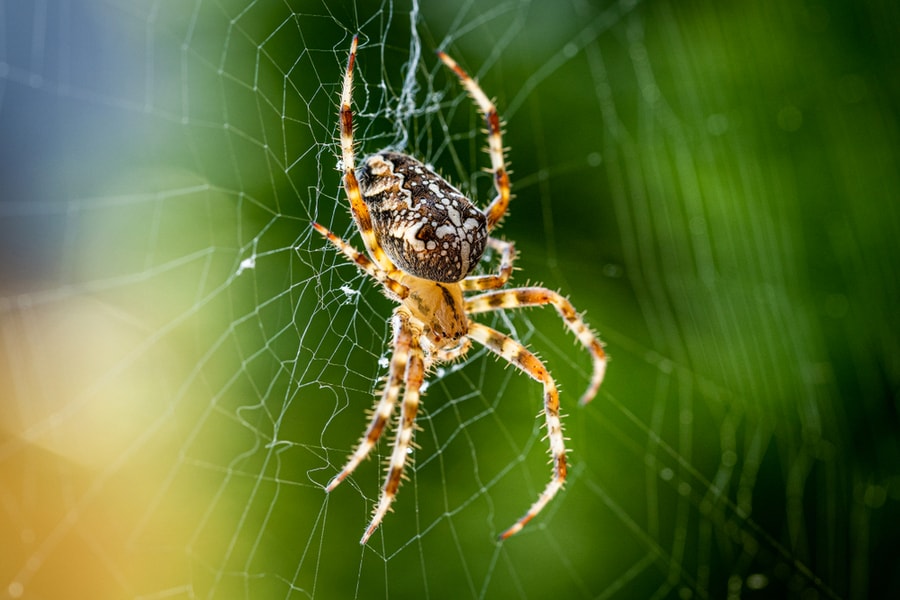
Whenever spiders visit a home, they leave an unpleasant calling card — strings of sticky spider webs. Some of their favorite spots to leave these gifts are windows and doorways, where they can easily attract prey.
Spiders trap flies and other tiny pests through these webs, which is often good. But, a spider web buildup can obstruct your view, and the untidy threads are often unpleasant.
So, let’s see how you can get out of this sticky situation with a few practical preventive tips.
To keep spider webs out of windows, you should:
- Draw your window blind or curtains.
- Clean your windows regularly.
- Apply traps and insecticides.
- Adopt natural homemade solutions.
These are tested and trusted strategies and would yield good results. But if the problem remains, you can call an exterminator.
The next few sections will discuss five practical ways to keep spider webs out of your window. But before we get into that, let us clear up some confusion between cobwebs and spider webs.
Are Cobwebs and Spider Webs the Same?
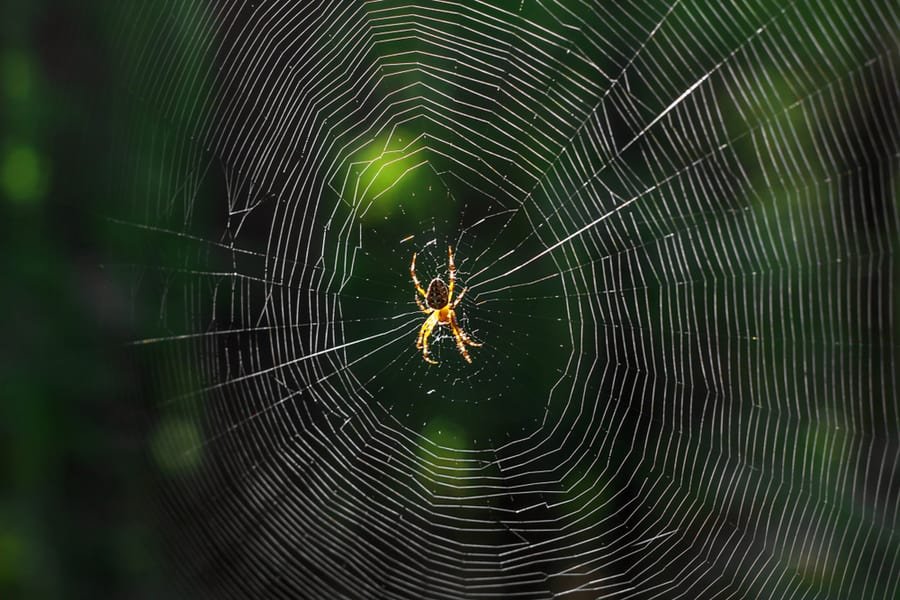
Spider webs are active traps that spiders use to catch prey, while cobwebs are the dusty version. So, whenever you see a neat-looking, transparent spider web, know that an active spider is in the area.
But if the web appears tattered and collecting dust, there is a good chance that the spider occupant has relocated. So, we can say that cobwebs and spider webs are the same things.
However, the difference between them is in their appearance. Now that we have cleared that up, let us look at how you can get these sticky webs out of your window.
5 Ways To Keep Spider Webs Out of Windows
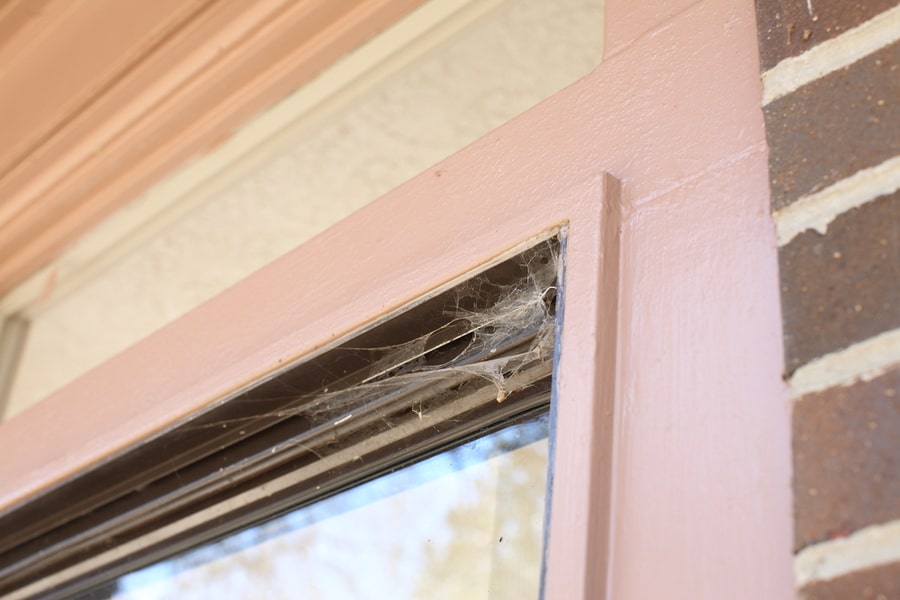
The best way to eliminate spiders from your windows is to prevent them from coming around in the first place.
But plus that, there are other deterrent ideas you can deploy.
Below, we recommend some tested and trusted strategies to keep these decorative arachnids and their web away from your windows:
1. Draw Your Window Blind or Curtains
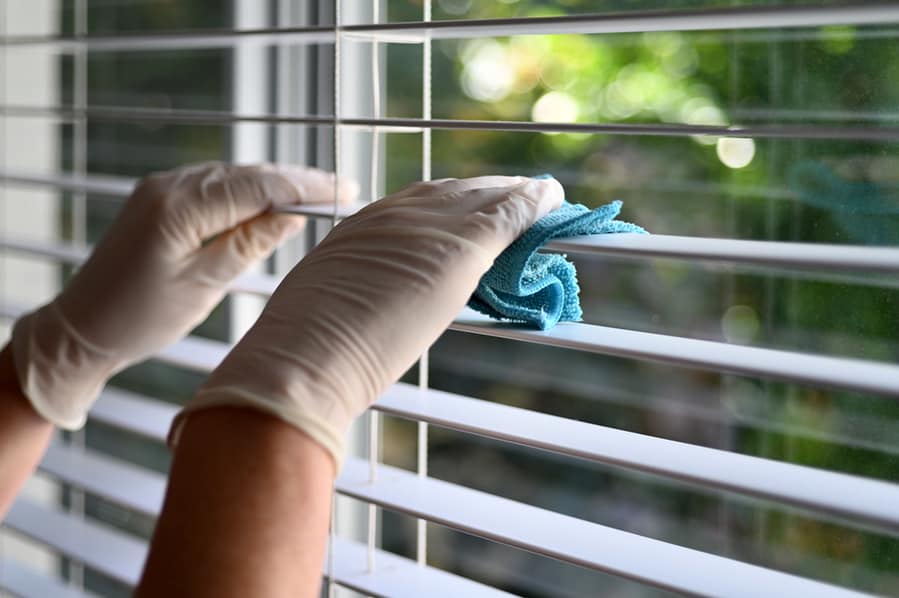
Spiders generally build webs around windows because of the lights that come through them. Insects love these lights, too, and will often fall into the spider webs when they come close.
So, draw your curtains or blinds to discourage spiders from coming around your windows. If you have none, here is a good opportunity to install some.
Then, turn off lights when not in use since lights are major spider attractants. Alternatively, you can replace overhead bulbs with floor lamps and other smaller light sources.
These are better for night use than overhead bulbs because they attract fewer bugs. But what do you do if you prefer overhead bulbs in your home?
In that case, we recommend using yellow LED bulbs. Like floor lamps, they do not often attract bugs.
2. Clean Your Windows
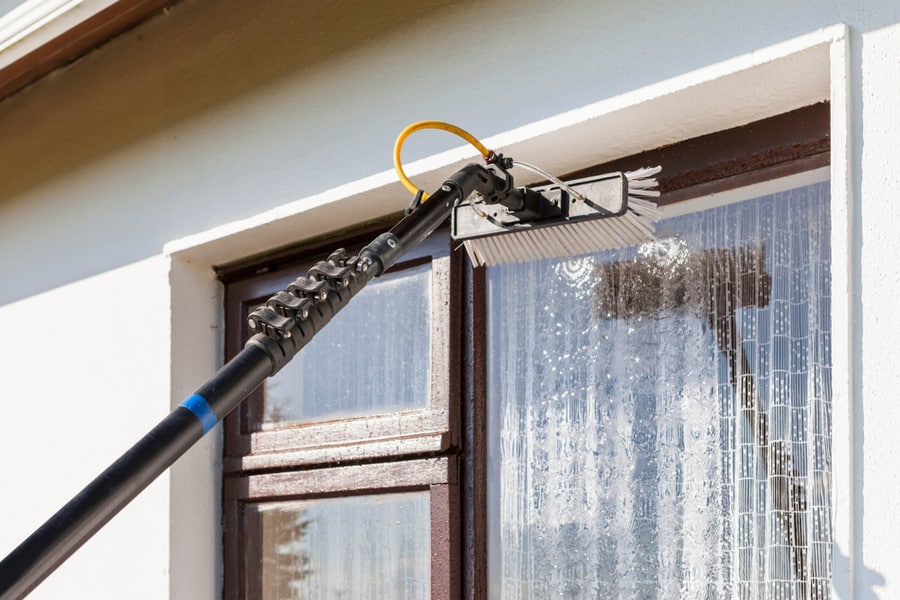
If you follow our pest control series, you will observe that we often always recommend cleaning as a control strategy. The reason is that pests are less likely to invade clean spaces.
If you follow our pest control series, you will observe that we often always recommend cleaning as a control strategy. The reason is that pests are less likely to invade clean spaces — the chances are slim.
You can schedule weekly cleaning sessions in your home to drive spiders away. Spiders are intelligent animals and are always ready to build a new web in no time.
But with frequent cleaning, you can discourage them from this activity. While we agree this is a lot of work, consider the long-term benefits.
For one, spiders — and, by extension — other pests will have nowhere to camp. Then, your house will have an enhanced appearance and feel more welcoming to guests.
3. Combine Traps With Insecticides

Some pest control methods, like liquid and aerosol insecticides, can help to keep spiders in check. Combined with other measures like traps, they create a formidable barrier against spiders.
First, inspect your window for spider activity. Look out for visible spider webs. Then, apply insecticide to target areas. The traps can catch any lingering spiders that escape the deadly sting of insecticides.
Alternatively, apply Diatomaceous earth to your window sill and sprinkle some on the spider webs. But remember to wear a mask while doing this because of the harmful effects of the chemical.
Then keep kids and pets away from the area while the treatment is ongoing.
4. Adopt Natural Homemade Solutions
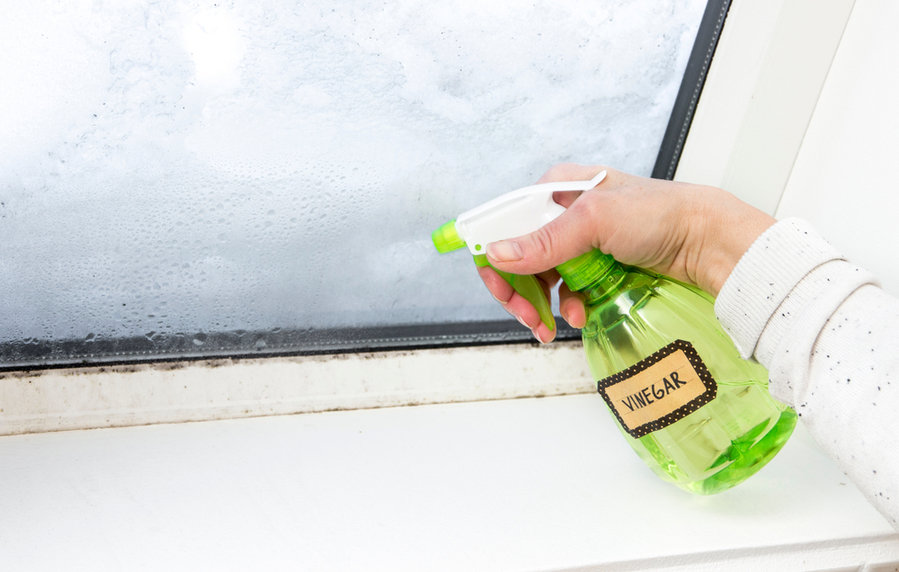
Sometimes, the best pest control strategies hide in your kitchen in plain sight. The good thing about these homemade strategies is that most do not kill spiders outright.
Instead, they help to ward them off, driving them away to other areas. Remember that spiders are good for the ecosystem because they help to control disease-transmitting bugs.
So, before you choose any spider control method, you may want to consider options that are better for the environment. For example, a simple vinegar and water solution can keep your windows spider-free.
Mix some water and vinegar in a spray bottle and apply on any spider web you see. We recommend using this solution once a week because of its strong effect. Also, avoid spraying the vinegar and water solution directly on the spiders, as this can kill them.
Vinegar is also damaging to varnished wood and can easily damage it. So, be careful when using this method in varnished areas.
But, if you do not want to take the risk, you can opt for citrus peels as a mild alternative. Get some citrus peels and rub them around your window frames.
Another alternative is wood chips because spiders cannot stand the smell. Sprinkle some in your window area and wait for the results.
5. Call an Exterminator
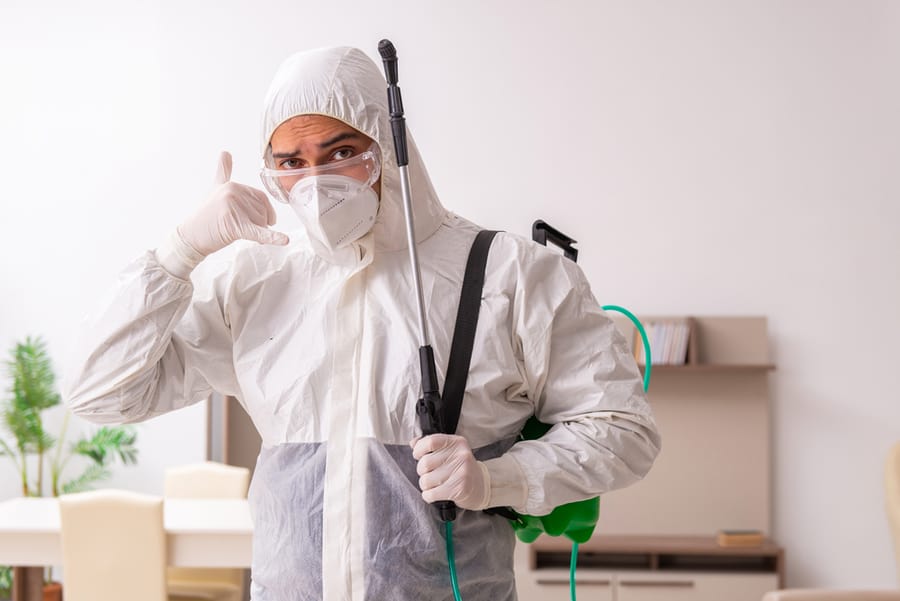
We put this option last because if other strategies fail, the last bet is to call exterminators for help. Plus, we understand that not everybody has the free time or patience to undertake pest control activities.
Besides, if you have a severe spider infestation in your home, these DIY control strategies may not yield good results on time.
Although hiring exterminators may cost a neat sum, the results are often worth the investment. These experts have superior pest control strategies, and with them, there are fewer chances of trial and error.
Conduct an online search of local exterminators, read reviews, and call the best options. Exterminators typically come around to inspect the affected building and recommend a solution that matches the situation.
However, as we said earlier, this is the most expensive method. So, only consider it if you have the cash to spare. Otherwise, stick to the DIY methods recommended above.
Conclusion
The presence of spider webs in your home means one thing — that there are creepy crawlers inside. While these arachnids help the ecosystem by reducing mosquitoes and other bugs, they are unpleasant.
Once you notice any of these, there is a problem on your hands. We put together some control measures to manage the situation.
Follow the tips in this article to build a defense against those unwanted webbed neighbors from your home.
Frequently Asked Questions
Do Spiders Bite?
Venomous species like the black widow can bite humans. Their bite can lead to severe reactions and, in the worst case, death.
Are Spiders Drawn to Potted Plants?
Spiders often hide between the leaves of potted plants and outdoor shrubs. So, while adopting control measures, you may want to move your plants away. This way, spiders have less reason to come around your house.

